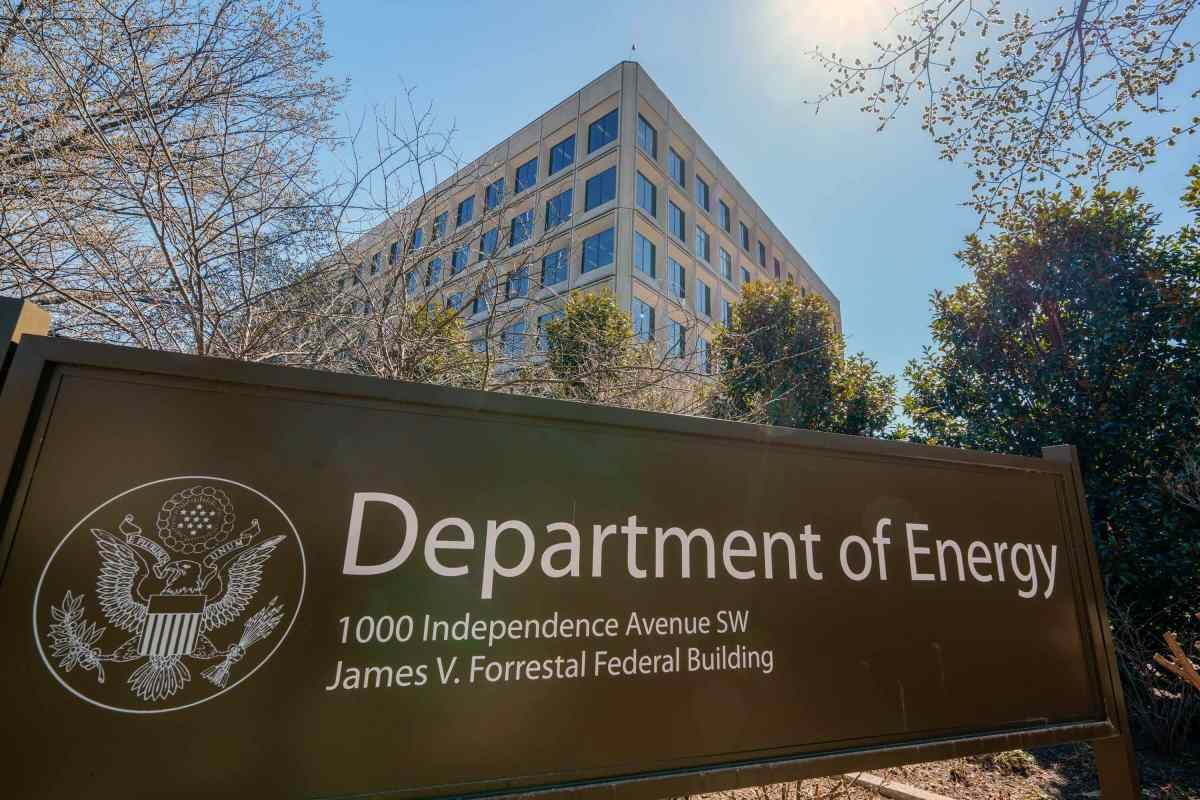This week, the Division of Power canceled almost $8 billion price of awards — a transfer touted by the Trump administration as an effort to guard fossil fuels on the expense of renewables. However paperwork obtained by TechCrunch present that the fact is extra advanced than that easy message.
The company has not launched an inventory of the canceled awards, however TechCrunch has obtained a replica and has analyzed the 321 contracts that the DOE is in search of to undo.
Not all tasks centered on renewable power, although.
Two listed within the doc, one for $300 million to Colorado State College and one other for $210 million to the Gasoline Know-how Institute, would have helped oil and gasoline producers giant and small cut back methane emissions from their wells.
The Gasoline Know-how Institute is a analysis and growth group that principally caters to the pure gasoline trade. The group had a dozen awards canceled, in accordance with the doc, totaling $417 million.
Carbon seize and removing additionally took a success, with 10 of the 21 tasks canceled totaling round $200 million. Many are in Harris-voting states, although that rubric doesn’t clarify the whole image.
“Three classes are popping up,” Erin Burns, government director at Carbon180, informed TechCrunch. “The place are they positioned? Who’re the companions in it? Had been these tasks going to maneuver ahead?”
Techcrunch occasion
San Francisco
|
October 27-29, 2025
It’s true that states which voted for Kamala Harris within the final presidential election had been hit hardest by the transfer. California misplaced essentially the most, with not less than $2.2 billion price of contracts canceled. Colorado, Illinois, Massachusetts, Minnesota, and Oregon every have round half a billion {dollars}’ price of awards that had been killed, with New York State shedding not less than $309 million.
People who voted for Trump tended to have contracts canceled price single-digit tens of millions of {dollars}.
One of many largest awards canceled was granted to the state of Minnesota for $467 million. Awarded as a part of the Bipartisan Infrastructure Legislation in 2021, the cash was meant to revamp electrical grid interconnections all through seven states within the Midwest. When full, it might have unlocked round 28 gigawatts of latest producing capability, principally photo voltaic and wind. For context, the world’s information middle fleet attracts 58 gigawatts, in accordance with Goldman Sachs.
One other worth $630 million would have likewise revamped California’s electrical grid, testing superior conductors and dynamic line ranking units to extend transmission capability. The venture successfully would have been a showcase for grid modernization that might be utilized all through the nation.
Yet one more grid modernization venture would have put in a transmission line to the Confederated Tribes of Heat Springs in Oregon. The tribes have roughly half a dozen renewable tasks ready on a greater grid connection, which the now-canceled $250 million award would have enabled. The venture would even have strung fiber-optic strains alongside the transmission line’s path, bringing high-speed information to a rural a part of the state.
“The recipients who’ve survived in blue states are maybe extra aligned with the administration and collaborating in industries which can be extra of a precedence for this administration,” stated Courtni Holness, managing coverage advisor at Carbon180.
A few of the smaller awards might need been nixed anyway. “That’s simply how the U.S. approaches power innovation generally,” Burns stated. “Take lots of photographs on objective since you’re unsure what’s going to maneuver ahead regionally, technologically, economically. And so you’re taking a bunch of photographs on objective at a decrease price.”
Nonetheless others look like pulling up stakes to maneuver the place authorities assist and insurance policies are going to be extra predictable, like Canada. “You’re going to see extra of that, and it’s having affect on non-public sector investments,” Burns stated.
“I believe it’s a much bigger query,” Holness added, “concerning the stability of our Division of Power and their capacity to be a accomplice to U.S. companies and have some type of predictability.”
